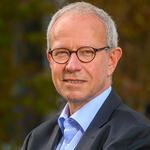New German-Danish research collaboration to focus on Alzheimer’s
Nearly half of women and a third of men over the age of 85 will develop Alzheimer’s dementia, according to estimates by scientists. In addition to age, key risk factors for dementia include metabolic diseases. Diabetes patients, for example, are three times as likely as others to develop Alzheimer’s.
But how are metabolic disorders linked to the development of neurodegenerative diseases? Professor Thomas Willnow has long been studying this question at the Max Delbrück Center for Molecular Medicine in the Helmholtz Association (MDC). Now, starting December 1, Willnow will begin to set up another research group at Aarhus University – in addition to his research work at the MDC. In this endeavor, he will collaborate closely with Professor Anders Nykjaer, a biomedical scientist at Aarhus University. The two have been working together for years, including on several research projects and two biotech spin-offs.
Scientific exchange
In the Skou building of the University of Aarhus, Thomas Willnow will in future gain the latest biomedical knowledge about human health and disease as a professor.
“Aarhus is a hot spot for neuroscience in Europe,” says Willnow. “The close collaboration and scientific exchange will benefit not just my own research, but also the MDC and Aarhus University.” A Novo Nordisk Foundation (NNF) Laureate Research Grant will provide €7 million over seven years for his project.
At the MDC Willnow has already identified a number of possible genetic risk factors for Alzheimer’s. Among these is the sortilin family of receptors, which plays an important role in not only the functioning of the brain but also many metabolic processes of the body. For example, some of these receptors control the amount of cholesterol in the blood, while others regulate the blood glucose level or determine body weight. What common signaling pathways do these receptors use to influence metabolism and brain function, and what role do the receptors play in the development of Alzheimer’s disease are the main research questions that the collaboration between the MDC and Aarhus University seeks to answer.
About NNF Laureate Research Grants
The Novo Nordisk Foundation (NNF) is an independent Danish foundation with corporate interests. Its vision is to contribute significantly to research and development that improves people’s lives and the sustainability of society. NNF Laureate Research Grants are for outstanding established scientists to come to Denmark to strengthen their groundbreaking research programs. These grants provide funding for research leaders to conduct large and long-term projects with transformative potential. Willnow was awarded the research grant in 2018.
Further information
The Max Delbrück Center for Molecular Medicine (MDC)
The Max Delbrück Center for Molecular Medicine in the Helmholtz Association (MDC) is one of the world’s leading biomedical research institutions. Max Delbrück, a Berlin native, was a Nobel laureate and one of the founders of molecular biology. At the MDC’s locations in Berlin-Buch and Mitte, researchers from some 60 countries analyze the human system – investigating the biological foundations of life from its most elementary building blocks to systems-wide mechanisms. By understanding what regulates or disrupts the dynamic equilibrium in a cell, an organ, or the entire body, we can prevent diseases, diagnose them earlier, and stop their progression with tailored therapies. Patients should benefit as soon as possible from basic research discoveries. The MDC therefore supports spin-off creation and participates in collaborative networks. It works in close partnership with Charité – Universitätsmedizin Berlin in the jointly run Experimental and Clinical Research Center (ECRC), the Berlin Institute of Health (BIH) at Charité, and the German Center for Cardiovascular Research (DZHK). Founded in 1992, the MDC today employs 1,600 people and is funded 90 percent by the German federal government and 10 percent by the State of Berlin.








